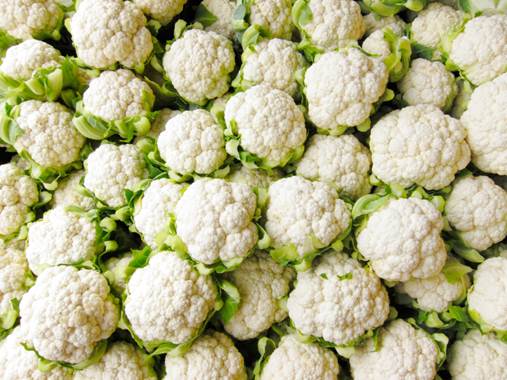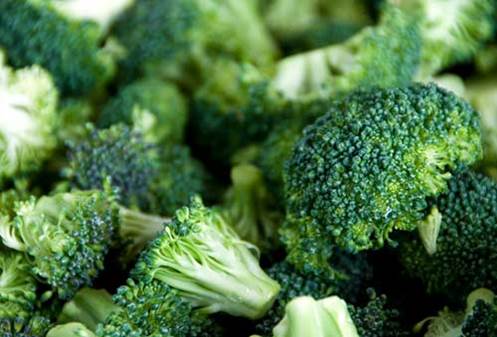The following reasons will show why you
should add cauliflower in your daily meal.

You
should add cauliflower in your family meals.
Provide anti-inflammatory products
If you are infected with chronic
inflammatory disease such as arthritis or gout, cauliflower is a good choice
because it contains flavonoid Kaempferol – a powerful and efficient
anti-inflammatory substance.
Anti-allergic matter
Within the anti-allergic matter, keampferol
helps pretending allergy. You can replace cauliflower by some of its relatives
such as cabbage, strawberry, tomato and grape.
Food that has plenty of fibrous matter
Cauliflower will keep you fit with a
rich-fibrous diet (about 2g/serving). Fibrous matter makes you feel full for
long and dominates your hunger. A small cauliflower for a mid-afternoon snack
is just about 30 calories, making your stomach full till dinner comes.
A vitamin-D-absorption support
One of the reasons is that cauliflower is especially
important to people who lack vitamin D. Cauliflower is also a great source of
vitamin K and A, and a support of the vitamin-D absorption.
It’s good for your eyes
Cauliflower is rich in carotenoid which is
a combination of lutein and zeaxanthin (both are good for eyes). Lutein which
is in tomato sauce, brings benefits to your eyes; however, tomato sauce may
contain sugar while cauliflower contains none.

You
should add green cauliflower in your family meals for wonderful health
benefits.
Skin regeneration
One more reason why you should eat
cauliflower daily is that it‘ll improve our outlook. A chemical substance in
cauliflower called glucoraphanin will be transferred in the digestive process,
and stimulate skin regeneration.
Cardiovascular prevention
Aside from the health improvement of eyes
ability, lutein in cauliflower can prevent cardiovascular issue. Similar to the
positive effect on eyes, lutein keep the artery opened and keep the circulation
on right tract.
High protein food
Cauliflower is a healthy, low-fat source of
protein: each serving contains 3g protein and no gram fat.
Prevent muscles from cramps

Cauliflower
helps preventing muscle cramps.
If you eat a banana in the morning before
running, you should eat a small amount of cauliflower in excess to provide
potassium to your body. Potassium is important to your body because it helps
prevent your muscles from cramps and fight against high blood pressure issue.
It’s good for your bones
According to USDA (United States Department
of Agriculture), 4% calcium provided in green cauliflower is especially good
for women who are under influence of bone disease like osteoporosis.